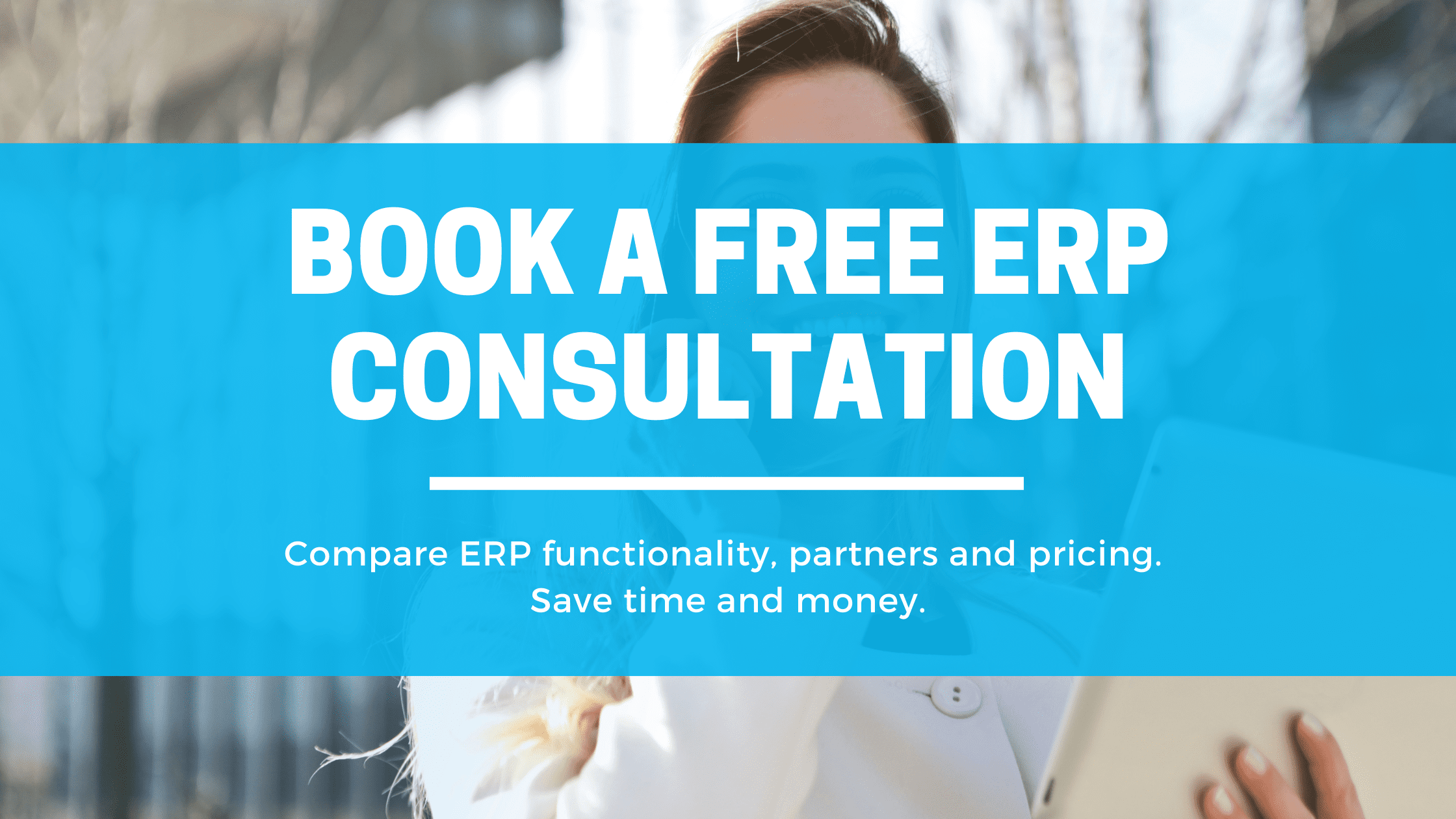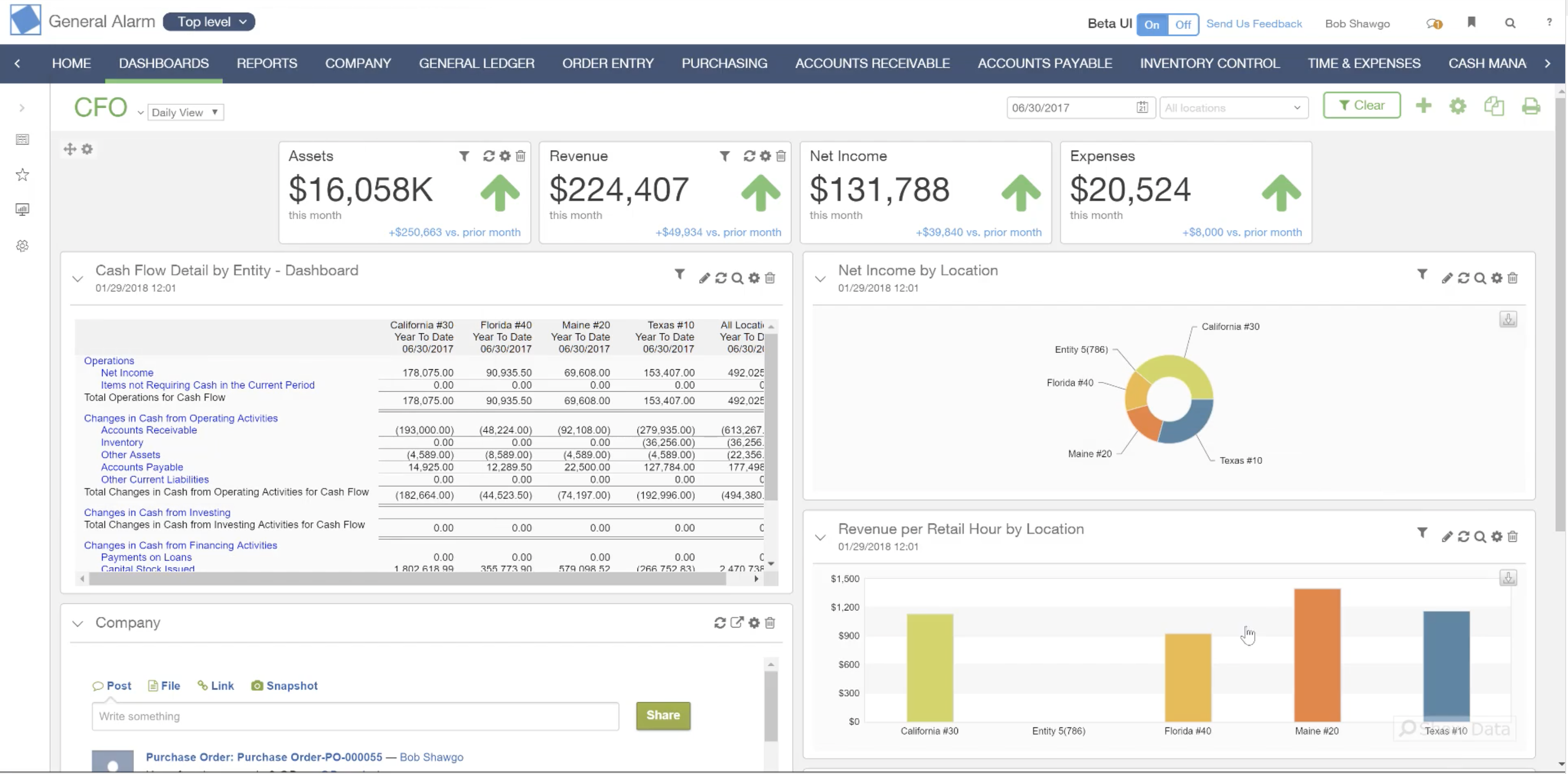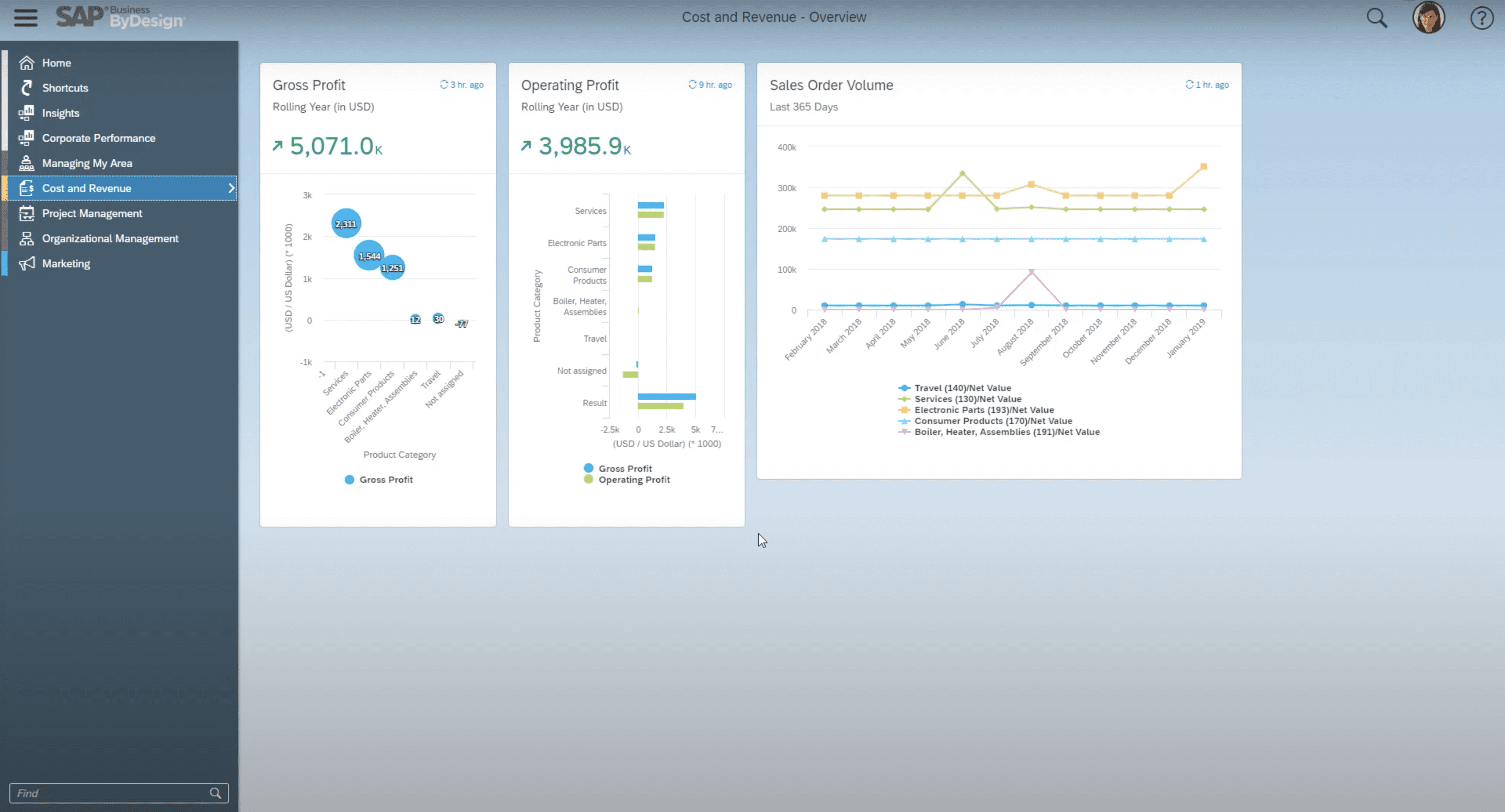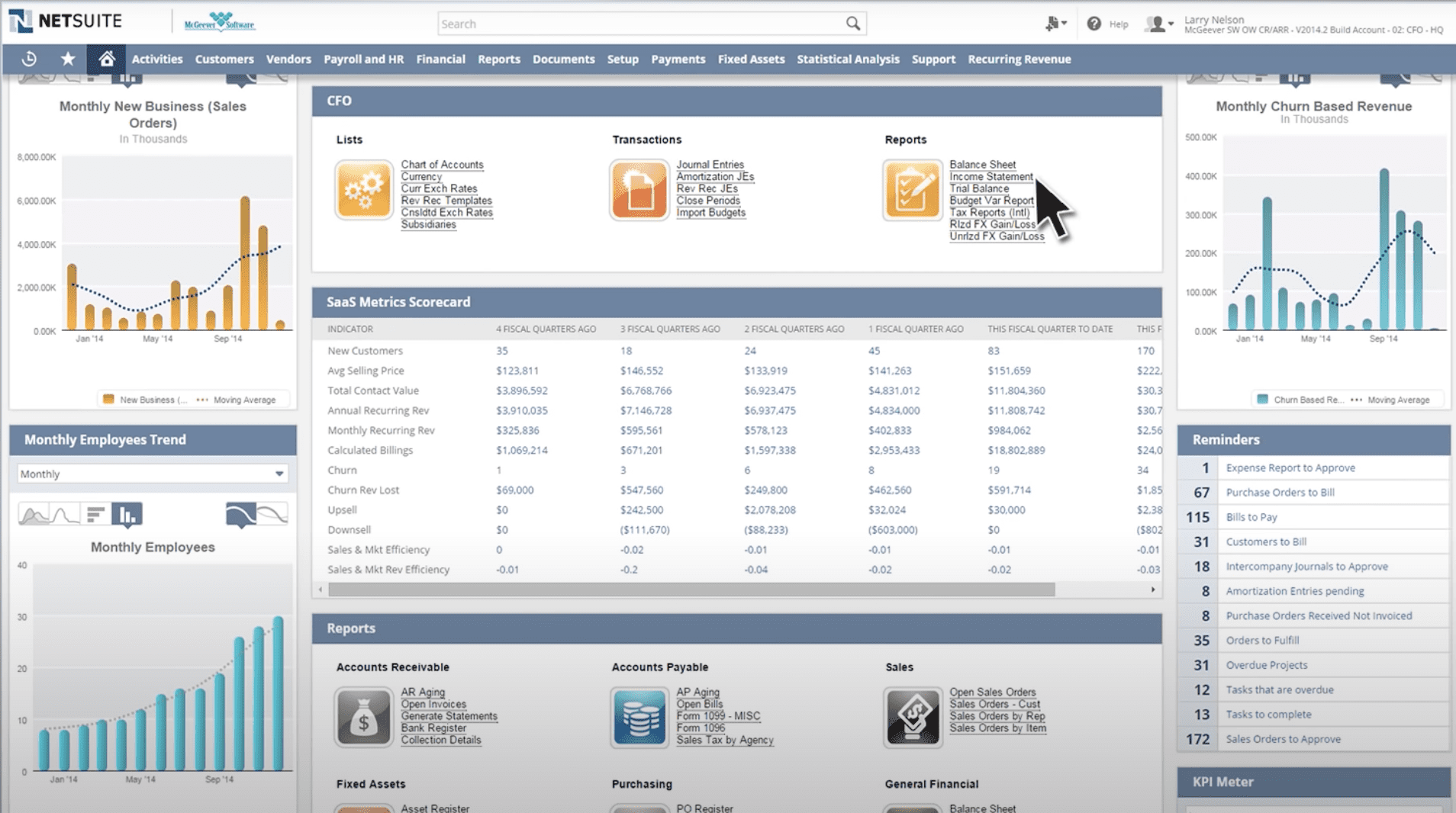In this post, we'll explore the journey that every startup & scale up takes, from both a business and systems perspective, when to review your ERP systems strategy and cover some popular scale-up ERP solutions.
When business is booming and what was once a great idea is now a company with hundreds of employees scattered around the country or the globe, your back office systems can start to creak and inefficiencies and risks can begin to rear their ugly heads.
Whilst running finance on QuickBooks and Xero was okay when you were at the $5M revenue mark, sooner or later the problems can become unbearable. CFO's and business leaders begin to ask - are these the systems that will get you to $20M, $200M, beyond?
There's no doubt that many large organizations can cope for a very long time without a robust ERP systems strategy, however more and more these companies are outdone by their digitally transformed peers.
When consolidating data sets from multiple systems takes days, is prone to human error and when you can’t give your board financial data on time, something needs to change. So when should you consider ERP for your scale-up?
For small businesses beginning their ERP selection & evaluation process, download our free ERP requirements gathering template below.

When is the right time to review systems?
When startups are young, it’s only natural to improvise along the way. When orders and customers start to rack up, what happens? You buy an off the shelf CRM system. When managing projects becomes a burden, what happens? You buy a Cloud project management tool. When those general ledger spreadsheets become too big? Sign up for QuickBooks.
Many of todays most successful startups & scale-ups are predominantly tech businesses, either selling and marketing technology products such as SaaS and software companies, or use tech as their key differentiator within their service offering. Naturally, these companies come preloaded with an employee base of developers who quickly jump to develop not only your products but back end systems amongst the litany of applications you bought off the shelf.
The cycle continues.
There’s no problem with this approach, it has a time and place. You cannot grow or even shape your business model without experimenting and then bedding in new agile ways of working and you certainly can't spare the dollars or time it takes to implement an enterprise wide system.
The problem is that at some point, what was agility becomes your number one enemy. All of those systems you purchased to run your business probably don’t talk to each other properly and data has to be exported, transformed and then keyed in or uploaded into another system. That makes your processes and data open to all sorts of issues including corruption and human error along the way as well as being plain inefficient.
Furthermore, it is expensive and time consuming enough to spend your developers time building your digital products and services. By having these employees building and patching your business systems too, you're taking away resource from your own products plus removing the possibility of exploiting the revenue this can generate.
When systems start to creak, at best, some customers may get annoyed that you missed their order and you'll send them a free product or coupon, at worst you can be susceptible to a data breach or fail to raise your next round of funding. The longer time goes on, the larger the cost of remaining 'agile' becomes and the harder it is to change.
If one or move of the above sounds familiar to you, then it may be time to consider your ERP systems strategy to ensure your scale-ups continued success.
If you'd like to get an unbiased view of the startup or scale-up ERP system & software market place, book a free consultation call with ERP Research.

Can't we just patch our systems up?
Of course you can!
Applying some virtual bandaids can sometimes be the cheapest, fastest and most sensible thing to do if you're cash strapped, in the midst of an aggressive growth phase or putting out some other fires in your scale-up.
But bear in mind that the longer you leave it, the worse it will get and the more expensive and risky change becomes. It is far easier to implement an ERP system when your scale-up company is young, pliable and used to change. It is far harder to tame your organization and systems spaghetti the larger you become.
As they say, there's also rarely a perfect time to do anything and you may forego an ERP project now at a perceivably busy time, only to find that in 6-12 months, the conditions are even worse and the odds are stacked more heavily against you.
What is an Enterprise Resource Planning (ERP) system?
ERP software is purpose built to remove the tangle of siloed systems and data within an organization. Simply put, they do the jobs of several systems, in one system, removing the data silos, integration issues and most of the human error too.
For example, an ERP system in a consultancy organization would cover financial management, billing, human resources, project management and maybe even customer relationship management. This means that rather than the project managers running MS Project, the finance team running Sage and the HR team running Bamboo, everyone runs the same system.
Therefore ERP systems allow everyone to have a single view of data and enable organizations to eliminate data silos, process bottlenecks and many other issues.
For growing startup & scale-ups specifically, an ERP allows them to become mature organizations that can take the next steps in their growth journey. They also prove to investors that you're serious and that you can handle the growth that their investment will bring.
Where do I start my ERP journey?
The best place to start when embarking on ERP project is to talk to your business and it's stakeholders. What are the goals of your board members, owners and executives? What are the daily woes of your foot soldiers and frontline workers? Are your customers unhappy and if so why?
By talking to the various stakeholders inside and outside of your organization, you can start to firm up the vision for change.
From there, we recommend you review our handy, free resources to help you get started:
1. ERP Business Case Template
2. ERP Requirements Template
3. ERP Project Plan Example
4. ERP Project Budget Calculator
Still not sure how to get started? Speak to one of our ERP experts for free.
Which ERP Systems Suit Scale-Ups?
At some point during the process, you'll need to consider which ERP solutions best serve the needs of your scale-up business. Every organization is different and operates in specific ways or in niche industries or geographies, but for scale-up organizations, here are are some of the most popular choices:
Sage Intacct

Intacct was one of the first Cloud ERP or finance systems to be released and has built up a formidable customer based and capability set since it's early days. It boasts over 14,000 customers and has modules covering general ledger, accounts receivable, accounts payable, sales order management, consolidation, fixed assets, project management and more. In the SMB space it has proven popular with software & SaaS startups, marketing agencies, not for profits and several other people centric businesses. This has made it one of the most popular and best scale-up cloud ERP solutions available on the market.
Organise a demo of Sage Intacct and get pricing on the link below.
Find out more about Sage Intacct>>>
SAP Business ByDesign

SAP is well known for it's ERP software that fits anything but small businesses, however it has a little known solution which is designed to do just this: SAP Business ByDesign (and SAP Business One). ByDesign is a lesser known product in the scale-up ERP world, but packs a punch with strong capabilities in several areas, including financial management, inventory, manufacturing and wholesale & distribution. It even comes with an inbuilt CRM, service desk and expenses management in one solution.
Get a demo of SAP Business ByDesign and pricing on the link below.
Find out more about SAP Business ByDesign >>>
Oracle Netsuite

Founded in 1998, the American software firm flipped the ERP market on its head by spearheading the movement from On-Premise ERP to Cloud. Designed specifically for the needs of small businesses and SME's, it has been implemented by thousands of SMB's in various industries, including professional services, SaaS, manufacturing, retail & ecommerce, distribution and more. Due to NetSuite's success, the company IPO'd in 2007 and was later acquired by Oracle Corporation. This has left some analysts questioning the future of the company, but it remains a firm favorite with small businesses that find QuickBooks or Xero a little too restrictive.
Get Oracle Netsuite pricing, demo's and more information on the link below.
Find out more about Oracle Netsuite >>>